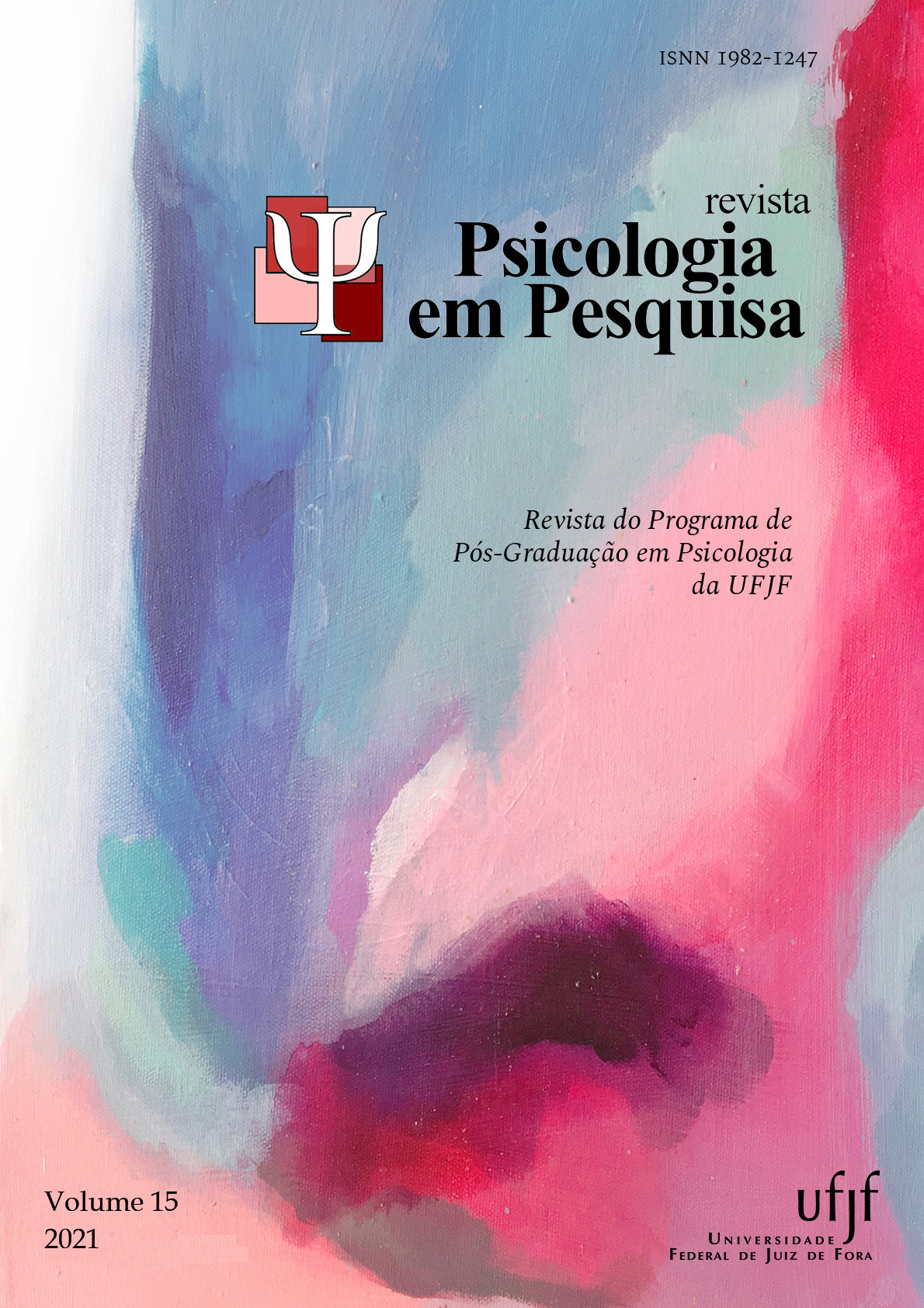Phenomenology of perception: theoretical foundations and research scenarios
DOI:
https://doi.org/10.34019/1982-1247.2021.v15.29674Keywords:
Phenomenology, Perception, Attention, Body, EthicsAbstract
In this text, we deal with theoretical foundations of the phenomenology of perception, as well as some of its thematic developments, mainly those directed to what we call ethics of perception. Among the points discussed in the text, the following stand out: the analysis, based on the phenomenological description of perception, of perceptual perspectivism, which preserves the transcendence of the perceived; the examination of the reference systems involved in the perceptual experience; the awareness of the role of the body in the phenomenal field, with the recognition of the overlap between perception and movement, and the plastic dimension of the sensitive experience; and the social character of perception.
Downloads
References
Bimbenet, E. (2010). Pour une approche phénoménologique de l’attention conjointe. Alter: Révue de Phénoménologie, 18, 93-110.
Bourdieu, P. (2000). Esquisse d’une théorie de la pratique. Paris: Éditions du Seuil. (original publicado em 1972).
Bruner, J. (1983). Child’s talk: learning to use language. New York, London: Norton & Company.
Citton, Y. (2014). Pour une écologie de l’attention. Paris: Éditions du Seuil.
Coelho Jr., N. (2016). A percepção e seus destinos em Merleau-Ponty e na psicanálise freudiana. In I. Caminha & T. Nóbrega (Orgs.), Compêndio Merleau-Ponty (pp.313-342.). São Paulo: LiberArs.
Collins, T. & Wyart, V. (2018). La perception visuelle. In T. Collins, D. Andler & C. Tallon-Baudry (Orgs.), La cognition: du neurone à la société (pp.239-269). Paris: Gallimard.
Colonna, F. (2014). Merleau-Ponty et le renouvellement de la métaphysique. Paris, FR: Hermann.
Crary, J. (2013). Suspensões da percepção: atenção, espetáculo e cultura moderna. (T. Montenegro, trad.). São Paulo, SP: Cosac Naify.
Crary, J. (2012). Técnicas do observador: visão e modernidade no século XIX. Rio de Janeiro, RJ: Contraponto.
Gallagher, S. (2005). How the body shapes the mind. Oxford, New York: Oxford University Press.
Gennart, M. (2011). Corporéité et présence: jalons pour une approche du corps dans la psychose. Argenteuil: Le Cercle Herméneutique.
Hatfield, G. (2012). Psicologia, filosofia e ciência cognitiva: reflexões sobre a história e a filosofia da psicologia experimental. In S. Araujo (Org.), História e filosofia da psicologia: perspectivas contemporâneas (pp.223-258). Juiz de Fora, MG: Editora da UFJF.
Heidegger, M. (2012). Os problemas fundamentais da fenomenologia (M. A. Casanova, trad.). Petrópolis, RJ: Vozes, 2012. (original publicado em 1975).
Heidegger, M. (2012). Ser e tempo (F. Castilho, trad). Campinas, SP: Editora da Unicamp; Petrópolis, RJ: Editora Vozes. (original publicado em 1927).
Husserl, E. (2004). La crise des sciences européennes et la phénoménologie transcendantale. Paris: Gallimard. (original publicado em 1954).
Husserl, E. (2002). Leçons pour une phénoménologie de la conscience intime du temps (H. Dussort, trad.). Paris: PUF. (original publicado em 1928).
Husserl, E. (2001). Idées directrices pour une phénoménologie et une philosophie phénoménologique pures (P. Ricoeur, trad.). Paris: Gallimard. (original publicado em 1913).
Husserl. E. (1989). Chose et espace: leçons de 1907 (J-F Lavigne, trad.). Paris: PUF.
Kanizsa, G. (1985). Seeing and thinking. Acta Psychologica, 59, 23-33.
Koffka, K. (1975). Princípios de Psicologia da Gestalt (A. Cabral, trad.). São Paulo: Cultrix. (original publicado em 1935).
Koffka, K. (1922). Perception: an introduction to the gestalt-theorie. The Psychological Bulletin, 19(10), 531-585.
Leder, D. (1990). The absent body. Chicago / Londres: The University of Chicago Press.
Merleau-Ponty, M. (2011). Le monde sensible et le monde de l’expression: cours au Collège de France, notes, 1953. Genève: Metispresses.
Merleau-Ponty, M. (1996). Le primat de la perception et ses conséquences philosophiques. Lagrasse: Verdier.
Merleau-Ponty, M. (1945). Phénoménologie de la perception. Paris: Gallimard.
Morris, D. (2004). The sense of space. Albany, NY: State University of New York Press.
Patočka, J. (1995). Papiers phénoménologiques. (E. Abrans, trad.). Grenoble: Jérôme Millon.
Piaget, J. (1964). Six études de psychologie. Genebra: Gonthier.
Sartre, J-P. (1980). L’être et le néant: essai d’ontologie phénoménologique. Paris: Gallimard. (original publicado em 1943).
Tomasello, M. (1999). The cultural origins of human cognition. Cambridge: MIT Press.
Trevarthen, Colwyn; Aitken, Kenneth & Gratier, Maya (2019). O bebê: nosso professor. São Paulo: Instituto Langage.
Verissimo, D. (2019). Escritos sobre a percepção: contribuições para o estudo fenomenológico da espacialidade, do corpo, da intersubjetividade e da cultura contemporânea. Tese de Livre-docência. Faculdade de Ciências e Letras de Assis, UNESP.
Waldenfels, B. (2010). Attention suscitée et dirigée. Alter: Révue de Phénoménologie, 18, 33-44.
Weil, S. (1988). Oeuvres complètes, Tome I : Premiers écrits philosophiques. Paris: Gallimard.
Weizsäcker, V. (1962). El circulo de la forma: teoría de la unidad de percepción y movimiento. Madrid: Ediciones Morata. (original publicado em 1939).















